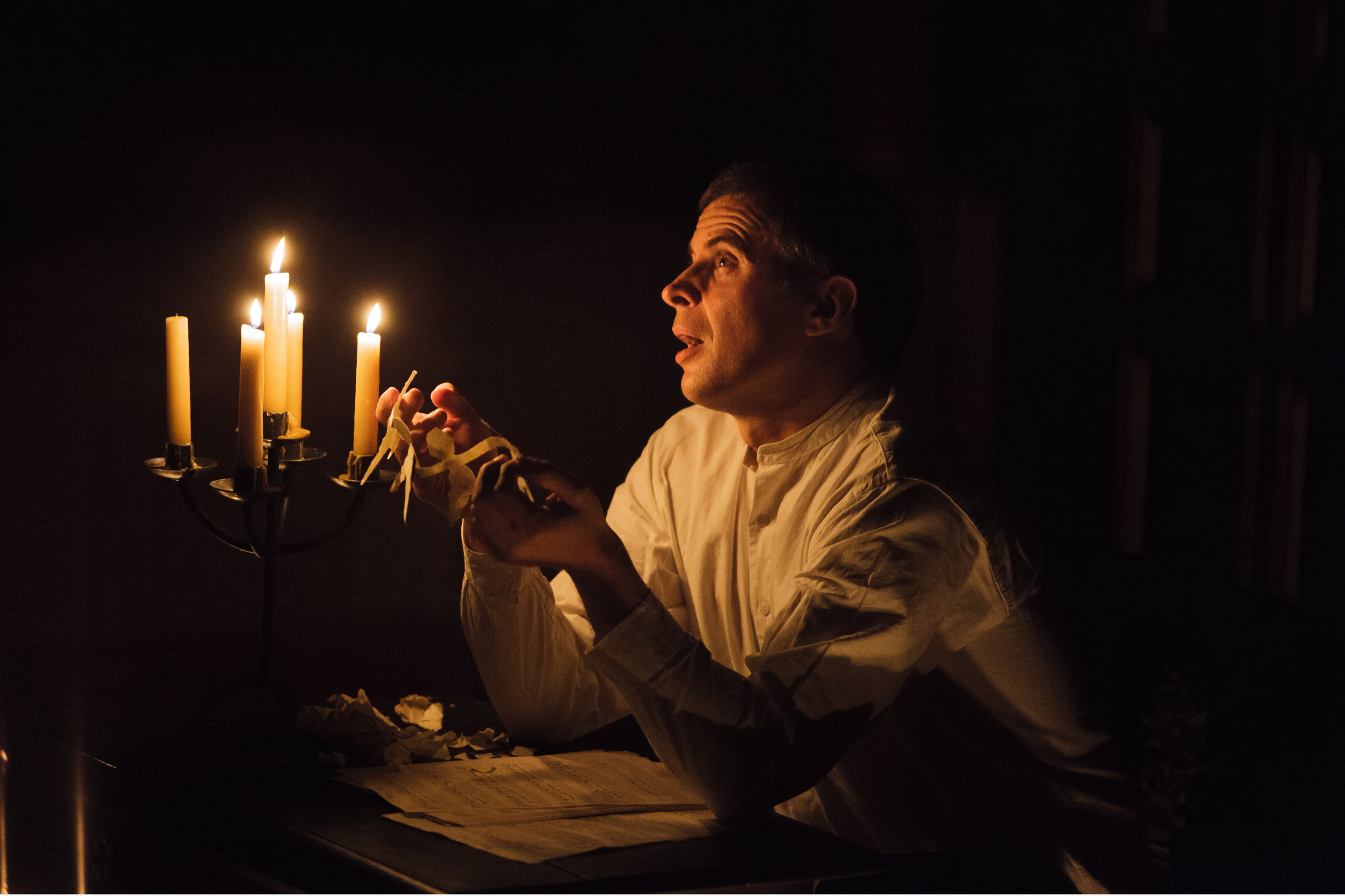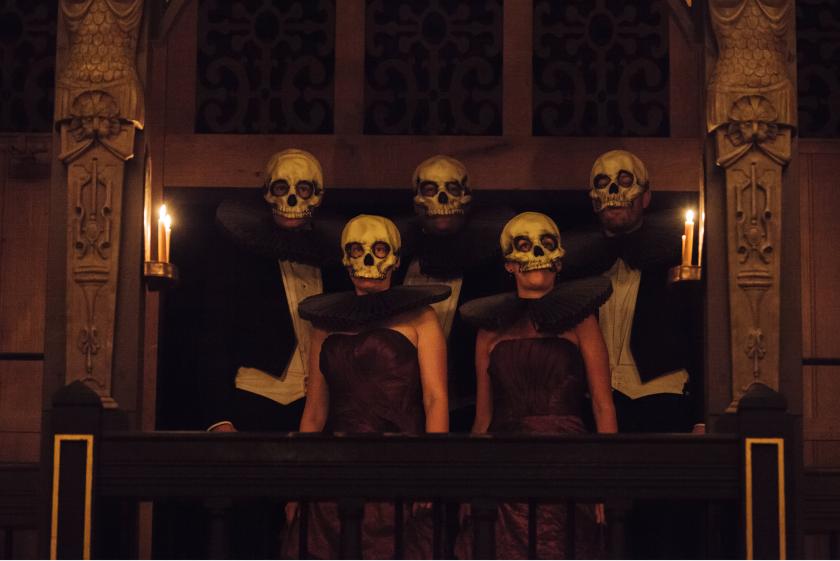Jessica Swale’s Thomas Tallis is the first new play commissioned for the Sam Wanamaker Playhouse – the beginning, hopefully, of the same relationship the Globe itself has always had with new writing. In concept, it’s everything this unique space should be doing, exploiting the Wanamaker’s physical intimacy and its architecture, placing music on an equal footing with drama, celebrating stories from the age of the theatre itself. In practice, however, Thomas Tallis is neither a satisfying play nor a satisfying concert. Stuck somewhere between the two, it never quite works out what it wants to say, or how best to say it.
Swale’s nominal focus is the Tudor composer Thomas Tallis, about whose life conveniently little is known. (The Tudors memorably imagined him as a bisexual sometime-lover-of-the-nobility, spicing up early episodes with his various intrigues). Less scurrilous, though no less fanciful, Swale’s Tallis is a frustrated artist, tossed on the capricious gales of religious change through the reigns of Henry VIII, Edward VI, Mary I and Elizabeth I. With creativity, duty and morality all at odds, he must find a way to continue to compose.
 Swale’s interest in Tallis seems limited to his symbolism – his convenient position as a touchstone of social and political change – and despite Brendan O’Hea’s efforts, he remains more mouthpiece than man. A final sleight of hand that sees O’Hea (pictured right) don the (contemporary) uniform of the guard that must take a Catholic priest (Simon Harrison) to his death at Tyburn feels contrived, manipulative. Does Tallis’s recusancy really equate to murder as neatly as director Adele Thomas would suggest?
Swale’s interest in Tallis seems limited to his symbolism – his convenient position as a touchstone of social and political change – and despite Brendan O’Hea’s efforts, he remains more mouthpiece than man. A final sleight of hand that sees O’Hea (pictured right) don the (contemporary) uniform of the guard that must take a Catholic priest (Simon Harrison) to his death at Tyburn feels contrived, manipulative. Does Tallis’s recusancy really equate to murder as neatly as director Adele Thomas would suggest?
It’s just one of a number of unfinished theatrical gestures that don’t quite add up to a drama. Why do the central characters wear period costume while guards/soldiers/accolytes sport riot gear and members of The Sixteen (even when taking character roles) are in black tie? What does a protracted scene in the Tower, heavy with allusions to Jesus and Mary Magdalene add to a tale whittled back to narrative bones? Why do the singers perform vernacular music during the reign of the sternly Catholic Mary I? It’s all rather muddled, distracting from the simplicity of the essential story and the potency of this magical space.
Musically there are some extraordinary moments: individual voices, scattered around the space, coalesce in the darkness into the harmonies of Tallis’s glorious canon “God Grant We Grace”; there’s an unaffected and beautifully direct performance of Compline hymn “Jesu Salvator Saeculi”. But there are also some odd ones. Why choose so unremittingly high a key for “Videte Miraculum” if it’s going to sound so strained? And why include the lengthy Responsory setting at all if you’re going to split up its structurally essential repetitions between scenes?
 Thomas Tallis is a very short play, and with so much time taken up by music, Swale gives herself little option but to offer the most cursory of character sketches. Guy Amos’s Edward VI is a priggish schoolboy, Katy Stephens’ Catherine of Aragon all imperious jealousy, while Simon Harrison’s Henry VIII a monster who poisons a man by way of casual revenge, his Dr Dee (pictured above) a fanatical madman. It’s all too dumbed-down, too convenient, undermining any attempts to dig deeper elsewhere.
Thomas Tallis is a very short play, and with so much time taken up by music, Swale gives herself little option but to offer the most cursory of character sketches. Guy Amos’s Edward VI is a priggish schoolboy, Katy Stephens’ Catherine of Aragon all imperious jealousy, while Simon Harrison’s Henry VIII a monster who poisons a man by way of casual revenge, his Dr Dee (pictured above) a fanatical madman. It’s all too dumbed-down, too convenient, undermining any attempts to dig deeper elsewhere.
At core Thomas Tallis is surely a play about the power of art and its relationship to the great unseeables and unknowables – an ambitious topic, and one it shares with Claire Van Kampen’s Farinelli and the King, also written for the Wanamaker. But where Van Kampen treads lightly and with a smile, Swale goes heavily, getting bogged down in history. Some beauty survives, but not quite enough humanity to make this show what it should be.
- Thomas Tallis at the Sam Wanamaker Playhouse until 8 November















Add comment